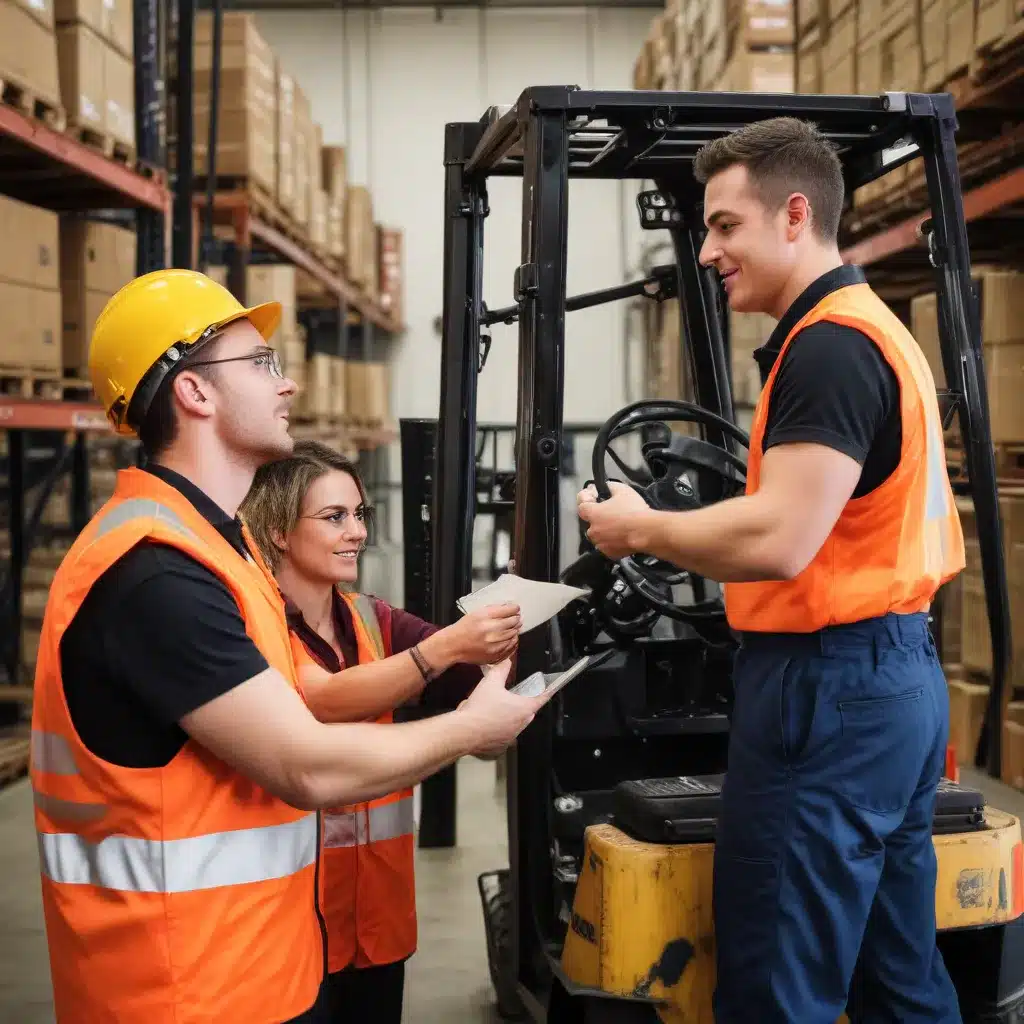
The Importance of Forklift Operator Mentorship
In the dynamic world of warehousing, logistics, and material handling, forklift operators play a crucial role in maintaining efficient and safe operations. These skilled professionals not only operate heavy machinery with precision but also serve as the backbone of many organizations, ensuring the seamless flow of goods and materials. However, as experienced forklift operators retire or move on to other opportunities, the transfer of their invaluable knowledge and expertise can become a significant challenge.
The loss of institutional knowledge can have far-reaching consequences, from reduced productivity and increased safety risks to hindered innovation and missed opportunities. To combat this issue, organizations must prioritize forklift operator mentorship programs that empower the next generation of safety experts. By fostering a culture of knowledge sharing and continuous learning, businesses can ensure the longevity of their operations and maintain their competitive edge.
Bridging the Knowledge Gap through Mentorship
One of the most effective strategies for preserving forklift operator knowledge is the implementation of structured mentorship programs. These initiatives pair experienced forklift operators with new hires or less experienced team members, facilitating the transfer of both explicit and tacit knowledge.
Explicit Knowledge Transfer
Explicit knowledge, which is easily documented and codified, can be shared through comprehensive training manuals, standard operating procedures, and hands-on demonstrations. By creating a repository of this information, organizations can ensure that critical details and best practices are not lost when experienced operators retire or leave the company.
Tacit Knowledge Sharing
Tacit knowledge, on the other hand, is the deeply personal and experiential understanding that is often difficult to articulate. This type of knowledge is best transferred through one-on-one mentorship, where experienced operators can share their insights, troubleshooting techniques, and industry-specific expertise. By fostering open communication and encouraging collaboration, mentors can help mentees develop the intuitive problem-solving skills and situational awareness that are essential for forklift safety and efficiency.
Fostering a Culture of Continuous Learning
Successful forklift operator mentorship programs go beyond just the transfer of knowledge; they also cultivate a culture of continuous learning and improvement. By encouraging forklift operators to share their experiences, challenges, and innovative ideas, organizations can create a collaborative environment that empowers all team members to contribute to the organization’s growth and safety initiatives.
Peer-to-Peer Learning
In addition to formal mentorship programs, organizations should also facilitate opportunities for peer-to-peer learning. This can take the form of regular safety briefings, forklift operator roundtables, or even cross-training sessions where operators can learn from each other’s unique perspectives and experiences.
Embracing Technological Advancements
To further enhance the knowledge-sharing process, organizations should leverage the power of technology. Platforms such as virtual reality (VR) and augmented reality (AR) can be used to create immersive training environments, allowing forklift operators to practice their skills in a safe and controlled setting. Additionally, cloud-based knowledge management systems can serve as centralized repositories for standard operating procedures, maintenance logs, and other critical documentation, ensuring that this information is readily available to all team members.
Developing the Next Generation of Forklift Safety Experts
By investing in forklift operator mentorship programs and fostering a culture of continuous learning, organizations can groom the next generation of forklift safety experts. These individuals will not only possess the technical skills and operational expertise required to excel in their roles but will also have the critical-thinking abilities and problem-solving acumen to navigate the evolving challenges of the industry.
Empowering Mentees to Become Mentors
As mentees progress in their careers, they should be encouraged to take on mentorship roles themselves, passing on their knowledge and experiences to the next cohort of forklift operators. This cyclical approach to knowledge sharing ensures that the organization’s institutional knowledge remains robust and adaptable, able to withstand the inevitable changes in personnel.
Celebrating Forklift Operator Excellence
To further inspire and motivate forklift operators, organizations should create opportunities to recognize and celebrate their achievements. This can include awards for outstanding safety performance, innovative problem-solving, or exceptional customer service. By highlighting the valuable contributions of forklift operators, businesses can foster a sense of pride and belonging within their workforce, ultimately enhancing employee retention and job satisfaction.
Embracing the Future of Forklift Operations
As the forklift industry continues to evolve, with new technologies and industry standards emerging, the importance of forklift operator mentorship and knowledge sharing becomes increasingly evident. By investing in these critical initiatives, organizations can not only safeguard their operations but also position themselves as industry leaders, capable of adapting to the ever-changing landscape of warehousing, logistics, and material handling.
At Forklift Reviews, we are committed to empowering forklift operators and the businesses that rely on them. Through our comprehensive reviews, safety guides, and industry insights, we strive to provide the knowledge and resources necessary to ensure the safety and efficiency of forklift operations. Join us in our mission to elevate the forklift industry and create a safer, more productive future for all.
Conclusion
Forklift operator mentorship and knowledge sharing are essential for the long-term success and sustainability of warehousing, logistics, and material handling operations. By fostering a culture of continuous learning and empowering the next generation of forklift safety experts, organizations can position themselves for ongoing growth and innovation. Through the implementation of structured mentorship programs, the embrace of technological advancements, and the celebration of forklift operator excellence, businesses can ensure the seamless transfer of knowledge and the continuous improvement of their forklift operations.

